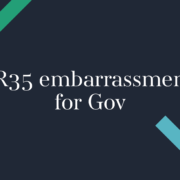
Making Tax Digital for Income Tax Self Assessment (ITSA)
It appears that all self-employed taxpayers will have to start reporting under Making Tax Digital for Income Tax Self Assessment in April 2023.
The removal of basis periods may have caused some confusion, so we have collected the current information that HMRC and professional bodies have put out so far through consultation documents and draft legislation for Making Tax Digital.
The final regulations for income tax won’t be published until this Autumn, which means some things could change.
Until then, this is what we know so far:
When must I join Making Tax Digital?
The joining date for all unincorporated businesses and landlords with a total business or property value above £10,000 per year will be the 6th April 2023.
How will the tax year be affected?
Changing to a tax year basis in 2023–24 means that all businesses have to report income and expenses that fall exactly in the tax year.
The draft legislation deems an accounting period ending on the 31st March to be treated as ending on the 5th April for tax purposes.
This combination of basis period and deeming provision means all unincorporated businesses will need to join the Making Tax Digital for Income Tax Self Assessment scheme from the next accounting period, starting on or after the 1st April 2023. If you draw up accounts to the 31st March 2023, you will join from the 1st April 2023 rather than 2024.
It is possible this may change due to the strain that will likely occur on HMRC’s systems and resources by having all unincorporated businesses join at the same time.
Will there be any change to the turnover threshold?
HMRC has already made it clear that all unincorporated businesses with an annual turnover of over £10,000 will be required to report income and expenses under Making Tax Digital for Income Tax Self Assessment, and it is unlikely this will change in the final regulations.
This includes if your income is coming from several different sources, such as businesses, trades, and property.
Will the start date have any deferrals?
There will be a deferral for a yet-to-be defined period for the following partnerships:
- Containing a corporate partner
- Limited partnerships
- LLPs
Are there going to be any exemptions?
The following taxpayers will have full exemption from Making Tax Digital for Income Tax Self Assessment:
- Trusts, including those with property income
- Estates of those deceased
- Non-resident companies
- Trustees of registered pension schemes
Some individuals may be able to claim exemption from Making Tax Digital for Income Tax Self Assessment if they are digitally excluded. It is likely that if you can get any form of internet access at your home, business, etc., then you will not be exempt on this basis, as suggested in the VAT Notice 700/22.
Will there be any easements?
HMRC has confirmed there will be no easement for taxpayers in the first year, but they will not apply any late filing penalties until there have been four late quarterly submissions.
What will the penalties be?
The whole system of penalties for late filing and late payments of income tax and VAT is set to be revised soon. These changes consist of a complex system of points that build up to a financial penalty. It is expected this new system will be brought into Making Tax Digital for Income Tax Self Assessment, but there has been no solid information released yet.
When are the filing deadlines?
HMRC has confirmed the filing deadlines for all will be:
- 5th August
- 5th November
- 5th February
- 5th May
The first mandated submission for July 2023 should reach HMRC by the 5th August 2023. This is a Saturday in the Summer Bank Holiday weekend in Scotland.
What should be submitted?
The quarterly submission will consist of total sales income for the period and total expenses in defined categories.
It is expected that these categories will align with the expenses currently required for the self-employed section of the self-assessment tax return.
Quarterly balance sheet statements will not be required.
Any accounting adjustments, such as for capital allowances or losses, will be made in the end-of-period statement on the final submission for the year.
How will the tax position be finalised?
The end-of-period statement has to be submitted by the 31st January following the end of the tax year.
Tax software providers will likely incorporate the end-of-period statement into their software, which also compiles and submits the finalisation statement.
The finalisation statement calculates the tax liability for the year and replaces the SA tax return. Any sources of income that have not been reported on the quarterly submissions or end-of-period statements are included in the finalisation statement.
What if I’m not within Making Tax Digital for Income Tax Self Assessment?
If you are currently required to submit an SA return, such as to report gains or taxable interest, you will continue to submit an SA tax return.
You can read the latest Making Tax Digital for Income Tax Self Assessment policy update.
Get More Business Blogs Like This
Like Us On Facebook | Follow Us On Twitter | Follow Us On LinkedIn



